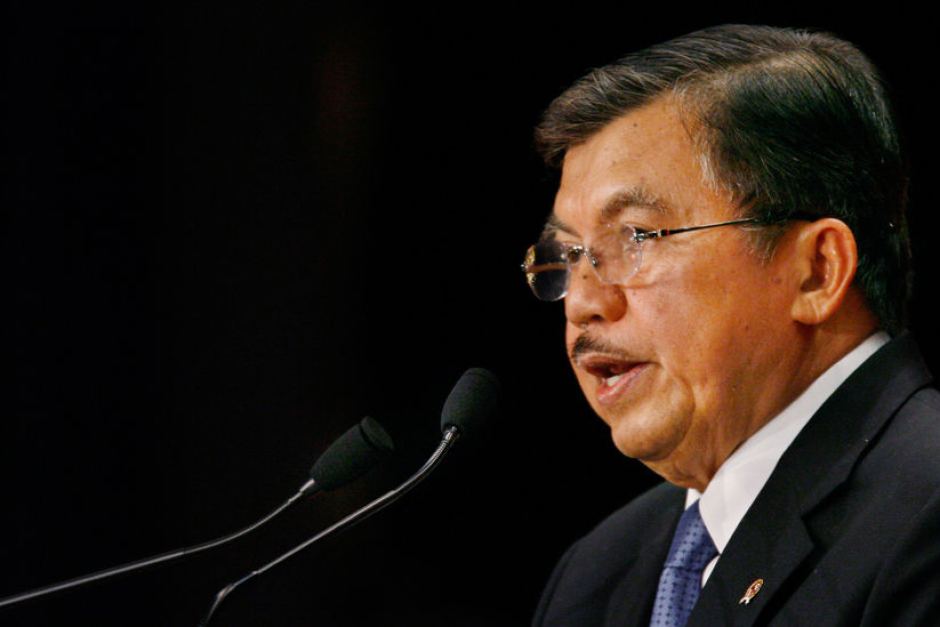Human rights activists have become increasingly concerned about a rising climate of religious intolerance in Indonesia. While the archipelago nation had long been upheld as a bastion of religious moderation, NGOs like Human Rights Watch argue that state-sanctioned, faith-based discrimination is becoming more common while recent polls show a serious increase in religiously intolerant attitudes amongst the general public.
But Indonesia’s vice president, Jusuf Kalla, didn’t think it was worth mentioning any of those concerns when he was speaking to ASEAN Youth Interfaith Camp (AYIC), held at Islamic Center Universitas Pesantren Tinggi Darul ‘Ulum (Unipdu) in Jombang, East Java yesterday. Instead, VP JK said that Indonesia was one of the best places in the world to learn about interfaith tolerance.
“Indeed, Indonesia is often a place to learn about maintaining tolerance,” JK told the AYIC participants as quoted by Tempo.
And what, in the vice president’s mind, makes Indonesia such a great place to learn about religious tolerance? First and foremost, the holidays.
“There are 15 official holidays (in Indonesia), three national ones, five for Islamic religious holidays, three Christian, and one each for Hinduism, Buddhism and Confucianism. Buddhists, whose adherents are less than 1 percent (of the population) have their own holiday, which is not the case in any other country in this world, China and Thailand are Buddhist and Hindu majority so there is no Idul Fitri (holiday),” JK said.
(We’ll concede he kinda has a point there – one of the few things about other religions that even hardline Islamists in Indonesia don’t seem to protest is getting the day off of work to celebrate their holidays.)
The vice president also said that religious tolerance was evident in the makeup of the president’s cabinet, which includes members of different religions, as well as the country’s 7 non-Muslim governors.
Regarding the last point, JK did not mention how many of those non-Muslim governors were elected in regions with non-Muslim majorities. One notable example of a non-Muslim governor in a Muslim-majority region is Basuki “Ahok” Tjahaja Purnama, the Chinese-Christian former governor of Jakarta, but he’s not a great example of the country’s religious tolerance, for obvious reasons.
READ: Jusuf Kalla doesn’t appreciate foreign media calling Ahok’s loss ‘win for hardline Islam’
JK ended his speech by asking the audience and all young people to help foster religious tolerance and understanding, noting that he himself runs a forum on religious harmony in Makassar.
While we can understand why the vice president would want to focus on the positive aspects of religious tolerance in Indonesia given the audience he was speaking to , it still feels very disingenuous to not at least acknowledge the serious concerns that many human rights defenders have about faith-based persecution in Indonesia, such as the increasingly frequent number of prosecutions under the country’s controversial blasphemy laws, state-sanctioned persecution of religious minority groups like Ahmadiyah and Gafatar, and the increasing number of sharia-based regional bylaws throughout the country. Until these issues are resolved, the Indonesian government cannot truly say it is committed to promoting religious tolerance, let alone be held up as an example of such.




